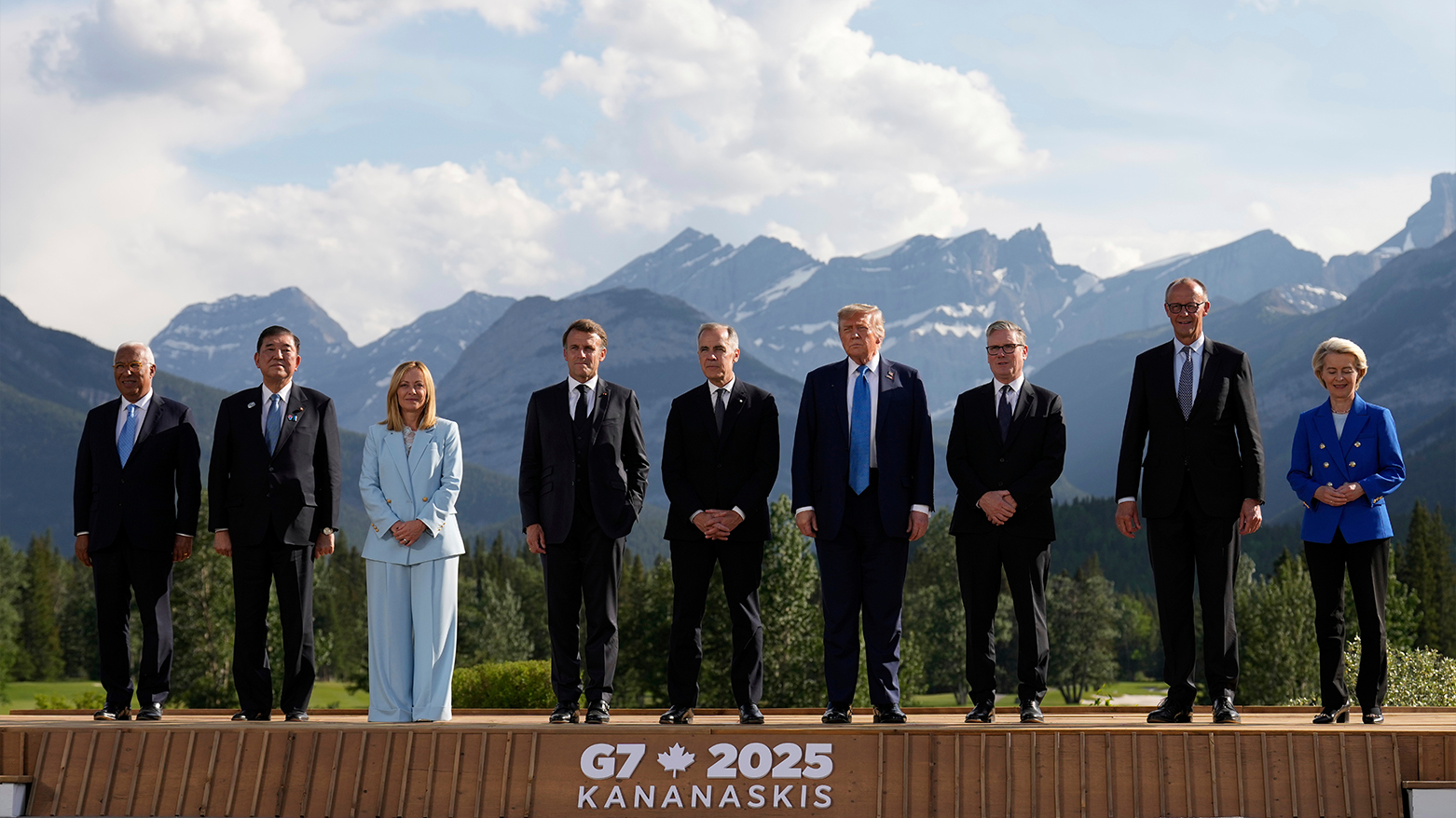G7 and Allies Warn Iran Over “Unacceptable” Overseas Kidnap and Harassment Campaigns
G7 and its allies have issued a joint statement condemning Iran for a campaign of transnational repression, including plots to kill and kidnap dissidents, journalists, and Jewish citizens on their soil, vowing to safeguard their sovereignty and defend individuals from Tehran's "malign activities."

ERBIL (Kurdistan24) – In a powerful and unified denunciation, the world’s leading industrial democracies, along with a coalition of key international partners, have issued a forceful joint statement condemning the Islamic Republic of Iran for a wide-ranging and escalating campaign of "malign activities," including transnational repression, sophisticated disinformation operations, and attacks designed to intimidate Jewish communities, which they say directly threaten their national sovereignty and the security of their citizens.
The statement, released by the G7's Rapid Response Mechanism (RRM), signals a new phase of collective resolve among the group's members to confront and impose costs on Tehran for what they describe as a flagrant and unacceptable violation of international law and democratic principles.
The formal condemnation was detailed in a media note released by the U.S. Department of State's Office of the Spokesperson on Friday, September 12, 2025. The statement, issued by the G7 RRM members—Canada, France, Germany, Italy, Japan, the United Kingdom, and the United States, along with the European Union—was also co-signed by associate members Australia, the Netherlands, New Zealand, and Sweden.
This broad coalition of fourteen nations utilized its Rapid Response Mechanism—a specialized body designed to strengthen coordination against foreign threats to democracy—to deliver an unambiguous and united message to Tehran. "Building on the recent G7 Leaders’ Statement on Transnational Repression," the statement read, "we will continue to safeguard our sovereignty, keep our communities safe, and defend individuals from the overreach of foreign governments trying to silence, intimidate, harass, harm or coerce them within our borders."
The central and most alarming charge leveled by the G7 and its partners is Iran's widespread and increasingly brazen practice of transnational repression.
The statement accuses Iranian intelligence services of a systematic and escalating effort to "kill, kidnap, and harass political opponents abroad," a campaign that they say follows a "disturbing and unacceptable pattern... and clearly undermining state sovereignty."
These operations reportedly target a wide array of individuals living far beyond Iran's borders, including journalists, human rights activists, political dissidents, and members of ethnic and religious minority groups. The statement also detailed "operations to obtain and disclose the personal information of journalists" and "attacks designed to divide societies and intimidate Jewish communities."
This coordinated condemnation from the G7 is the culmination of a series of increasingly dire warnings and concrete actions taken by individual member states over the past year in response to what they describe as a surge in Iranian intelligence plots on their soil.
As reported by news outlets such as Euronews, Al Jazeera, and Reuters, a coalition of Western allies had previously issued a joint statement in early August 2025, accusing Iranian intelligence services of a growing number of threats across Europe and North America.
That statement, which was signed by a similar group of nations, explicitly noted that these services were "increasingly collaborating with international criminal organizations to target journalists, dissidents, Jewish citizens, and current and former officials."
The evidence of this campaign has been mounting. In the United Kingdom, a parliamentary committee recently attributed at least 15 plots to murder or kidnap individuals in the UK since January 2022 to Iranian intelligence operatives.
In the Netherlands, security services said Tehran was behind a foiled 2024 attempt to assassinate an Iranian dissident.
Across the Atlantic, the U.S. Department of Justice has successfully prosecuted members of an international criminal gang, acting at the behest of a senior Iranian official, for plotting to murder an Iranian-American journalist.
Perhaps the most dramatic and decisive response to these activities came from Australia in late August 2025.
As previously reported by Kurdistan24, the Australian government expelled Iran’s ambassador after its domestic spy agency, ASIO, concluded that Tehran’s Islamic Revolutionary Guard Corps (IRGC) had orchestrated antisemitic attacks on Australian soil, including an arson attempt at a Melbourne synagogue and an attack on a Jewish-owned business in Sydney.
ASIO director-general Mike Burgess described the operation as a "layer cake of cut-outs" in which the IRGC used a network of paid intermediaries, a tactic that aligns with the G7's warning of collaboration with international criminal networks.
The Australian government also moved to formally designate the IRGC as a terrorist organization, a significant escalation that places it firmly in line with Washington's harder stance on Tehran.
Iran has consistently and vehemently denied all such accusations, dismissing them as "baseless" and "blatant fabrications." Following the joint statement in August, a spokesperson for Iran’s Ministry of Foreign Affairs, Esmaeil Baghaei, characterized the claims as "part of a malicious Iranophobia campaign aimed at exerting pressure on the great Iranian nation." He argued that the accusations were a diversionary tactic to shift public attention from "the genocide in occupied Palestine."
The G7's latest statement, however, makes it clear that the world's leading democracies view these incidents not as isolated events but as a coherent and hostile strategy that directly challenges the "rules-based international order."
By standing in solidarity with all international partners whose citizens and residents have been targeted, the G7 and its allies are signaling that the era of individual responses is over, and that a new phase of collective and coordinated action to counter Tehran's global campaign of repression is now underway.